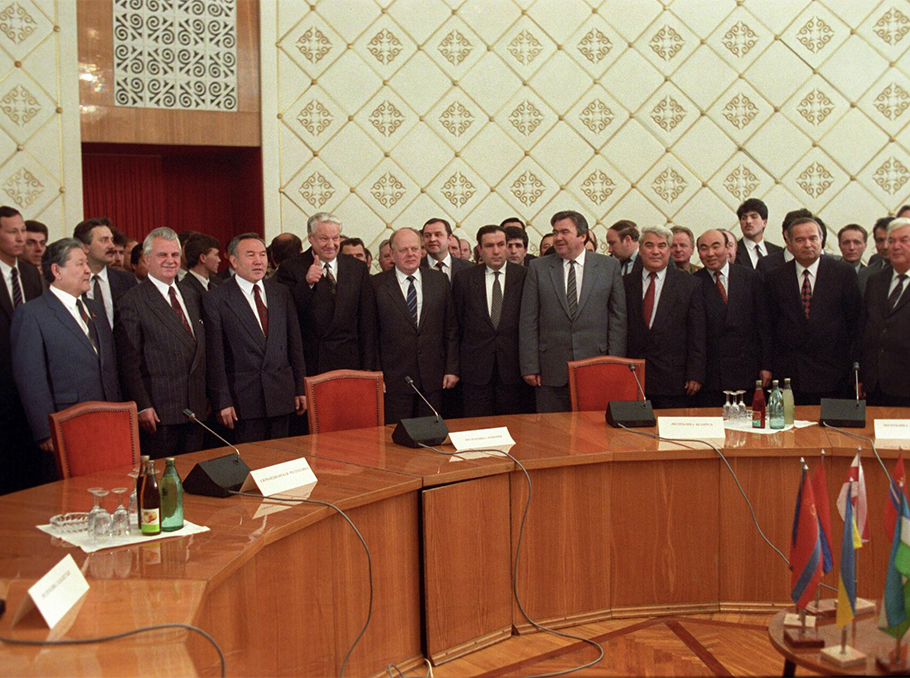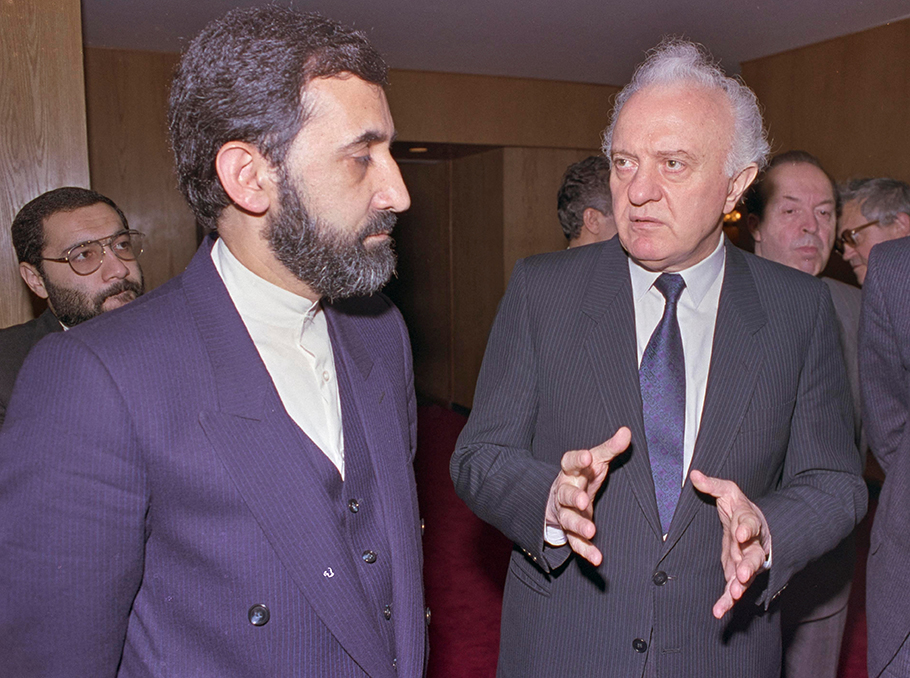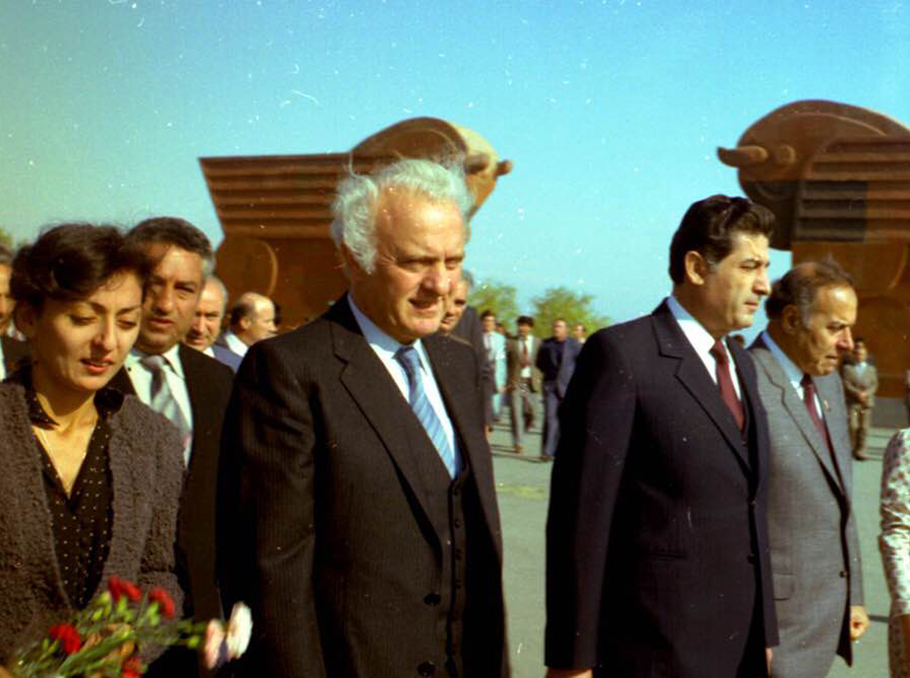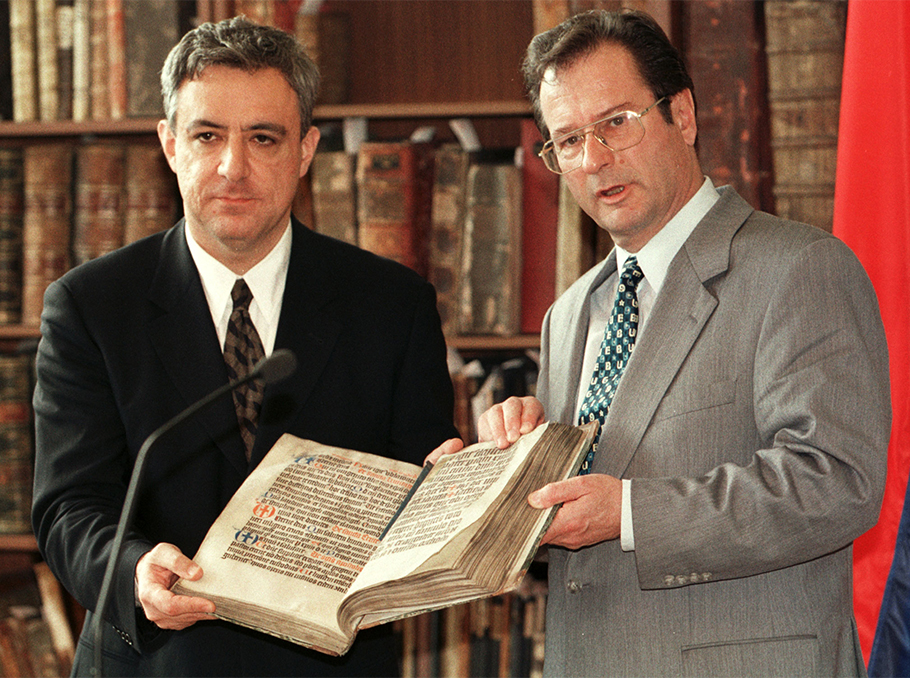On December 21, 1991, in the capital of Kazakhstan, the Alma-Ata Declaration was signed.
This document was recalled on October 6, 2022, when, following a meeting in Prague, the leaders of Armenia, Azerbaijan, France and the president of the European Council adopted a joint statement, which, in particular, stated:
“Armenia and Azerbaijan confirmed their commitment to the Charter of the United Nations and the Alma-Ata 1991 Declaration through which both recognize each other’s territorial integrity and sovereignty.”
On December 1, 2022 Foreign Minister of Russia Sergey Lavrov stated:
“And the Alma-Ata Declaration on the establishment of the CIS clearly states that the borders between the new states will be based on the borders of the former union republics of the USSR, where the Nagorno-Karabakh Autonomous Oblast was definitely part of the Azerbaijan SSR. This was approved by Azerbaijan, Armenia, France and Mr. Michel without any reservations, and this determines how to approach the issue on the status of Karabakh. And when, by signing this, our Armenian partners tell us “let Russia confirm its proposals regarding the status of Karabakh,” well, you understand that it is not from the negotiation “opera”, but from another one.”
We found in the archives the interview of the first President of Armenia Levon Ter-Petrosyan to the special correspondent of the Zerkalo weekly Gurgen Khazhakyan after signing the Declaration in Alma-Ata.
In response to the question whether the Alma-Ata agreements provide for mechanisms to monitor the fulfillment of the commitments assumed by the members of the CIS, as well as sanctions for failing to fulfill them, Ter-Petrosyan said:
“Initially, three states signed an agreement in Belarus. In Alma-Ata, other republics, in fact, acceded to this Agreement. No new document was actually prepared. This is a political declaration of a general nature, which, of course, does not provide and cannot provide any details. An agreement was reached that all the points you are talking about will certainly be reflected in the Charter of the Commonwealth.
Thus, in addition to the already signed Agreement, the Commonwealth will have another important document – the Charter – containing all the mechanisms for monitoring the fulfillment of commitments – both economic and in the field of human rights and national minorities, autonomies, as well as appropriate sanctions in case of failure to fulfill these commitments.”
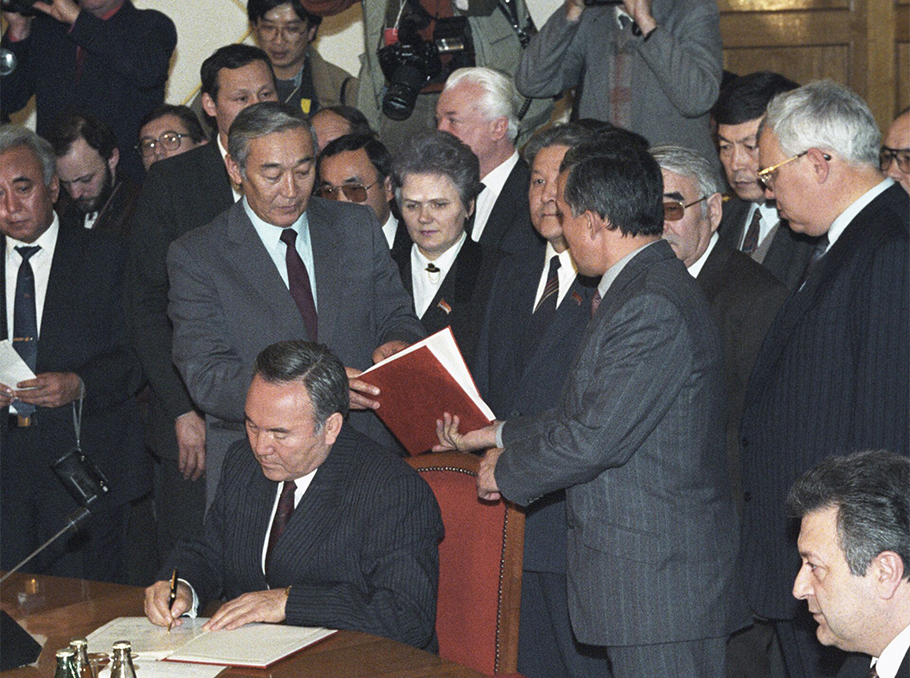
Photo: Sputnik’s archive
Then, the President of Armenia said that issues related to the violation of human rights in Moldova and Azerbaijan were discussed in Alma-Ata.
“At this stage, the parties that signed the CIS Agreement limited themselves to listening to the assurances of the leaders of Azerbaijan and Moldova about their readiness to renounce policy of force and settle all emerging issues peacefully. I do not know how much one can believe such assurances that we have been listening to for the fourth year already, but I think the very fact that this issue was raised should sober up the leaders of the states mentioned above,” Ter-Petrosyan noted.
Commenting on the attitude of the leaders of the CIS countries to the Nagorno-Karabakh Republic’s request to accept it into the Commonwealth, the President of Armenia said:
“Russia’s President Yeltsin said that there are applications for admission to the CIS from a number of former autonomies, in particular, from Gagauzia and Nagorno-Karabakh. He emphasized that in the future, apparently, there will be a need to consider this issue. I do not think that this is an accidentally dropped phrase, because the status of autonomies should be enshrined in the documents of the Commonwealth one way or another. After all, if not today, then tomorrow similar questions will inevitably arise with other autonomies.”
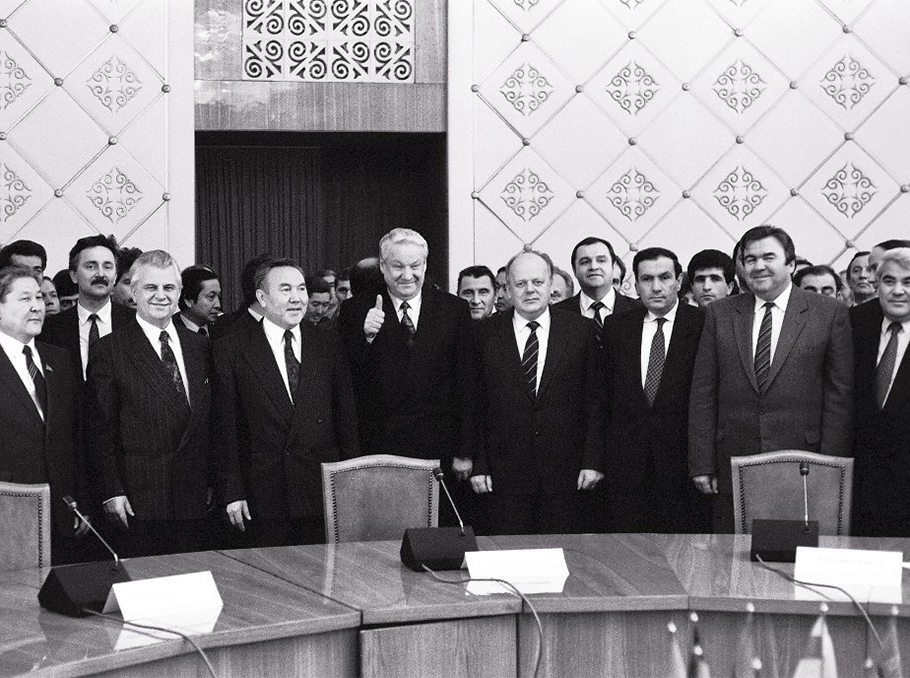 Leaders of CIS countries after signing the Alma-Ata Declaration
Leaders of CIS countries after signing the Alma-Ata DeclarationPhoto: Sputnik’s archive
Answering the specifying question - “What do you think about Russian autonomies?” - Levon Ter-Petrosyan said:
“The status of Russian autonomies today is the one that would completely satisfy the population of Nagorno-Karabakh, I think. We do not want more.”









